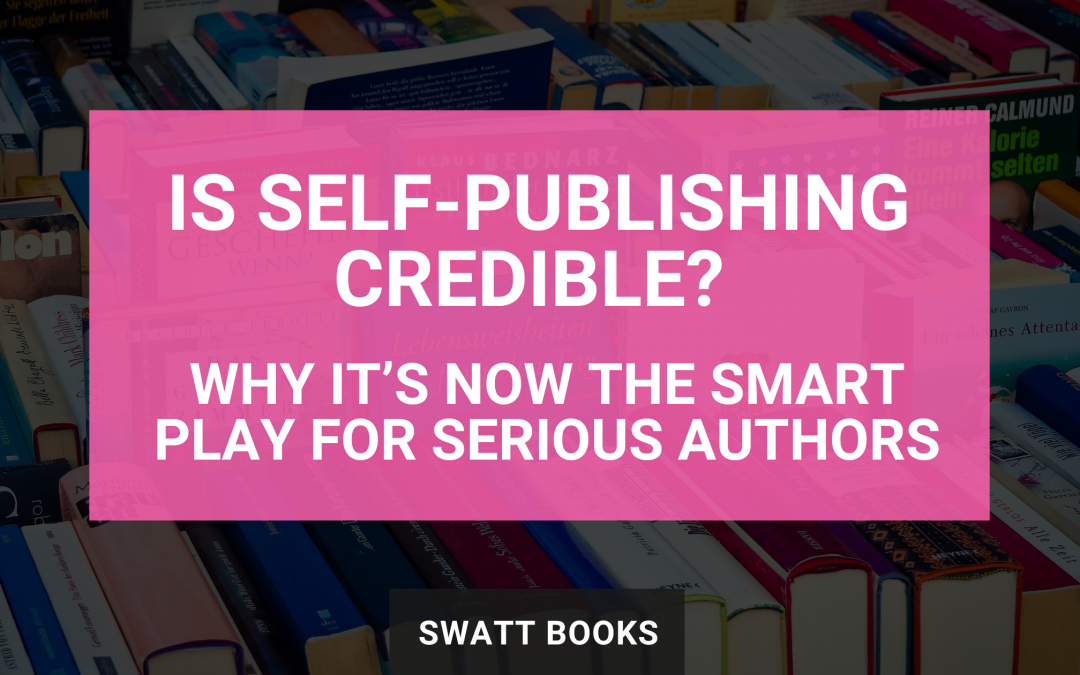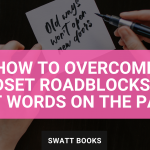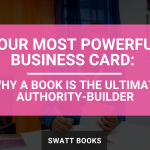If you’d asked me 15 years ago “Is self-publishing credible?” I probably would have hesitated before answering.
Back then, the honest truth was… not always.
The self-publishing world had a reputation problem: DIY covers, minimal editing, “vanity presses” printing anything for a fee. And for business authors, credibility is currency—so why risk it?
But here’s the thing: the publishing landscape has changed. Radically. And today, self-publishing—done well—is not just credible. For many experts, it’s the smartest strategic move you can make.
If you’re curious exactly what it takes to do it right, my free 49-Step Roadmap will walk you through every stage of the process—from your first idea to a professional launch.
📌 Grab your copy here: https://experttoauthor.co.uk
If you’ve been on the fence about whether self-publishing can build your authority rather than damage it, let’s talk about what’s changed, what makes a self-published book credible, and why it might be the best business decision you ever make.
Why Self-Publishing Used to Have a Bad Reputation
For decades, traditional publishing was the gatekeeper. If a big publisher picked you, you “made it”. If you didn’t, you could always self-publish—but it was often seen as the option for people who “couldn’t get a deal”.
Why?
- Vanity presses took money from authors without providing professional quality.
- DIY limitations—without today’s design tools and freelance talent, authors struggled to produce books that looked and read like the real deal.
- Distribution barriers meant books rarely left the author’s garage.
The result: self-publishing carried a stigma that put many serious authors off even considering it.
The Game-Changers That Made Self-Publishing Credible
The past 10–15 years have seen a publishing revolution. Several shifts have levelled the playing field—and in some cases, tilted it in favour of authors who go the independent route.
1. Print-on-Demand Technology
Services like Amazon KDP, IngramSpark, and BookVault mean your book can be printed to order and shipped globally—without you ever touching a box of stock. No upfront print runs, no garage storage, no risk of thousands of unsold copies.
2. Professional Freelance Ecosystem
Need a killer cover design? An experienced editor? A formatter who knows industry standards? The gig economy and specialist publishing freelancers mean you can now hire the same talent traditional publishers use—directly.
3. Global Distribution
With the right setup, your book can be available everywhere: Amazon, Barnes & Noble, Waterstones, indie bookstores, even libraries. And yes, self-published titles now qualify for major book awards and review coverage.
4. Author Control
Self-publishing gives you full creative and strategic control. You choose the title, the cover, the structure, the release date. And you retain 100% of your rights—critical for repurposing content into courses, keynotes, or licensed editions.
5. Higher Royalties
Traditional publishing typically pays 7–12% of net sales. Self-publishing royalties can be 40–70% of the sale price. That means more revenue per copy and faster ROI—especially if you integrate the book into your sales and marketing funnels.
Is Self-Publishing Credible for Business Authors? Absolutely—Here’s Why
For business owners, coaches, and thought leaders, the question isn’t just “Can I publish?” but “Will this book enhance my authority?”
When done right, the answer is a resounding yes.
- Indistinguishable Quality – With professional editing, design, and production, a reader (or event organiser, or corporate client) will never know whether you self-published or went the traditional route—and frankly, they won’t care.
- Speed to Market – In business, timing matters. Traditional publishing can take 18–24 months from manuscript to launch. Self-publishing lets you go live in months, not years—without sacrificing quality.
- Aligned Marketing Strategy – You can position your book exactly for your audience, not a publisher’s mass-market target. That means higher relevance, better engagement, and more leads or sales from the right people.
- Proof of Expertise – In 2025, credibility isn’t about how you published—it’s about the value your book delivers. A well-produced, strategically positioned self-published book says you’re a doer, not just a dreamer.
Busting the Last Credibility Myths
Myth 1: “Self-published books aren’t taken seriously by media or event organisers.”
Reality: If your book looks professional and offers value, it can (and does) open doors to TV interviews, keynote stages, and corporate deals. I’ve seen it happen for my clients—and for my own books.
Myth 2: “Bookstores won’t stock self-published titles.”
Reality: Many will, especially if you distribute through IngramSpark and your book meets their quality and pricing standards.
Myth 3: “Self-publishing is easier.”
Reality: It’s more flexible, but it requires you to manage the process—or hire someone who can. The quality is entirely in your hands, which is both a challenge and a huge opportunity.
Why the Smart Money’s on Self-Publishing
Here’s the bottom line:
Self-publishing is no longer the “last resort” for those who couldn’t get a book deal. For many professionals, it’s the first choice—because it offers control, speed, higher margins, and the ability to integrate seamlessly with your business goals.
And perhaps most importantly—it’s credible. In fact, in some circles, being independently published is seen as a sign of entrepreneurial spirit and strategic thinking.
How to Make Your Self-Published Book Credible
If you want your book to stand shoulder-to-shoulder with traditionally published titles, you need to approach it with the same professional standards:
- Hire a professional editor—at least a copyedit and proofread, ideally with a structural edit.
- Invest in quality design—both the cover and interior layout.
- Choose the right distribution channels for your audience.
- Plan your marketing before the book launches, not after.
- Integrate your book into your wider business or personal brand strategy.
Do these things, and you’ll have a book that looks, feels, and reads like the real deal—because it is.
Final Thoughts: Is Self-Publishing Credible?
Yes—when it’s done strategically, self-publishing is not just credible; it’s powerful.
In the end, credibility comes from the quality of your work, the clarity of your message, and the value you deliver to your readers—not from the logo on the spine.
So if you’ve been hesitating, wondering if self-publishing might hurt your reputation, let me say this: done right, it can supercharge it.
📌 And here’s your first step: download my free 49-Step Roadmap to Go From Expert to Published Author.
It walks you through exactly what to do—and in what order—to take your book from idea to professional publication without the overwhelm.
🎯 Get your copy here: https://experttoauthor.co.uk





